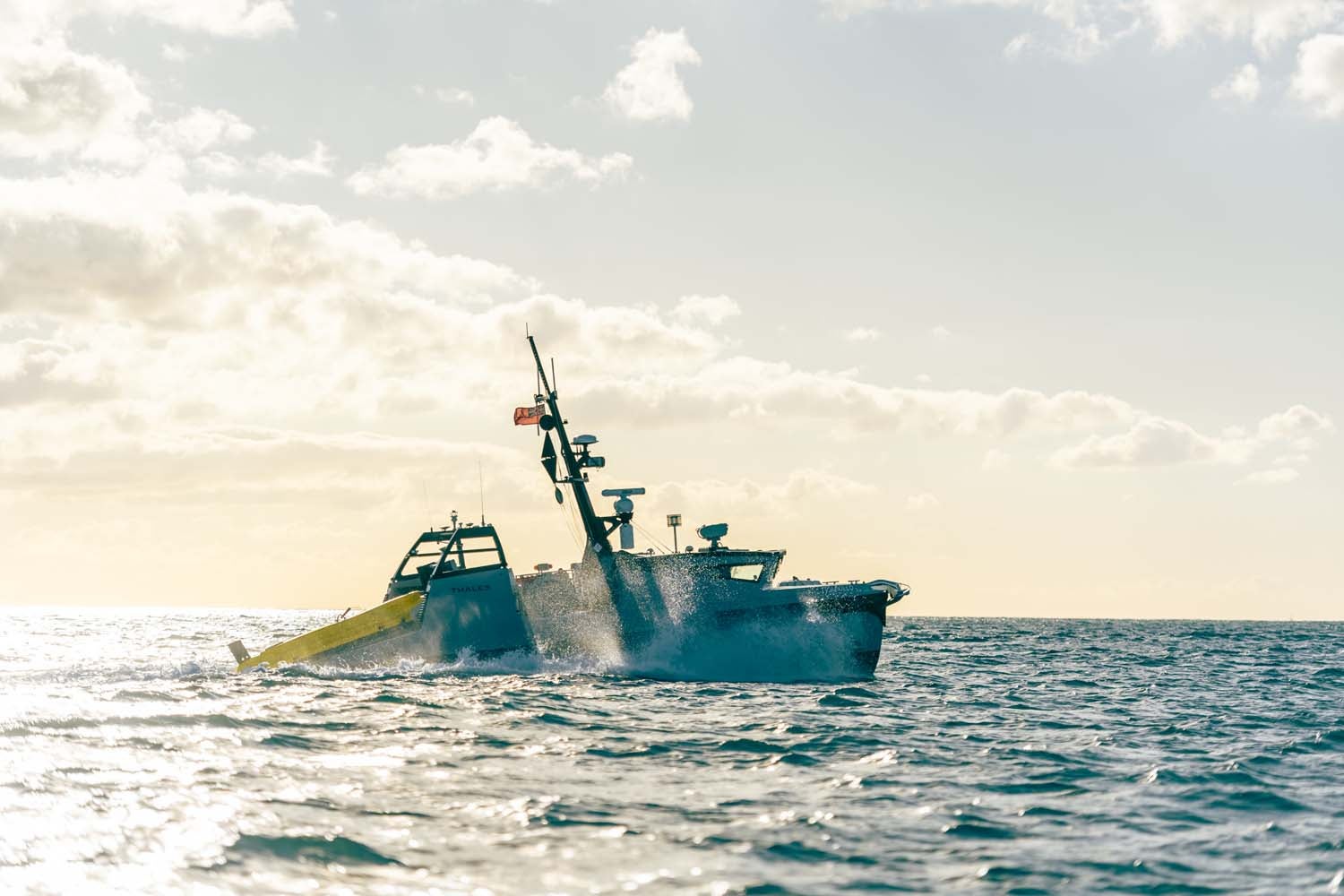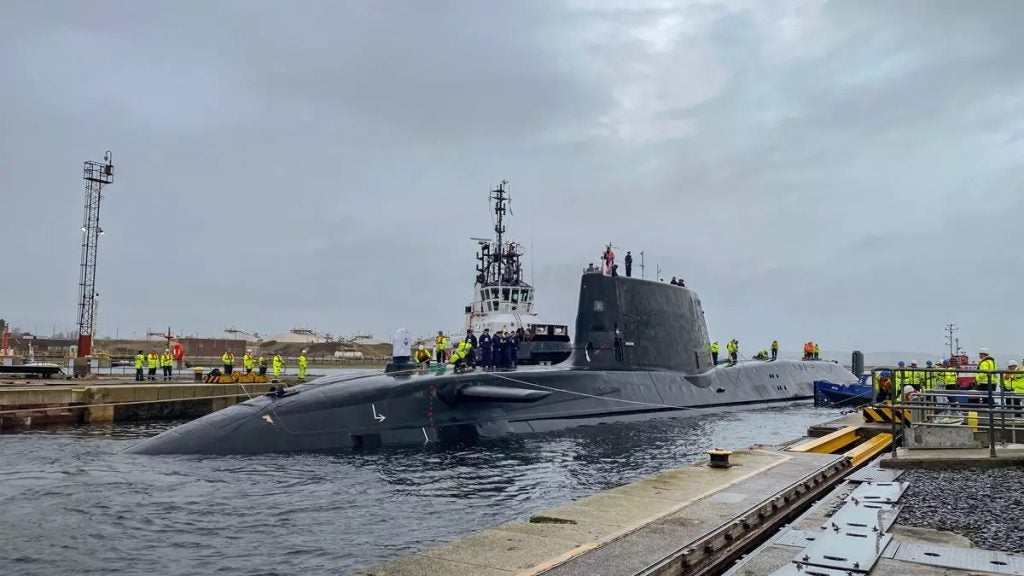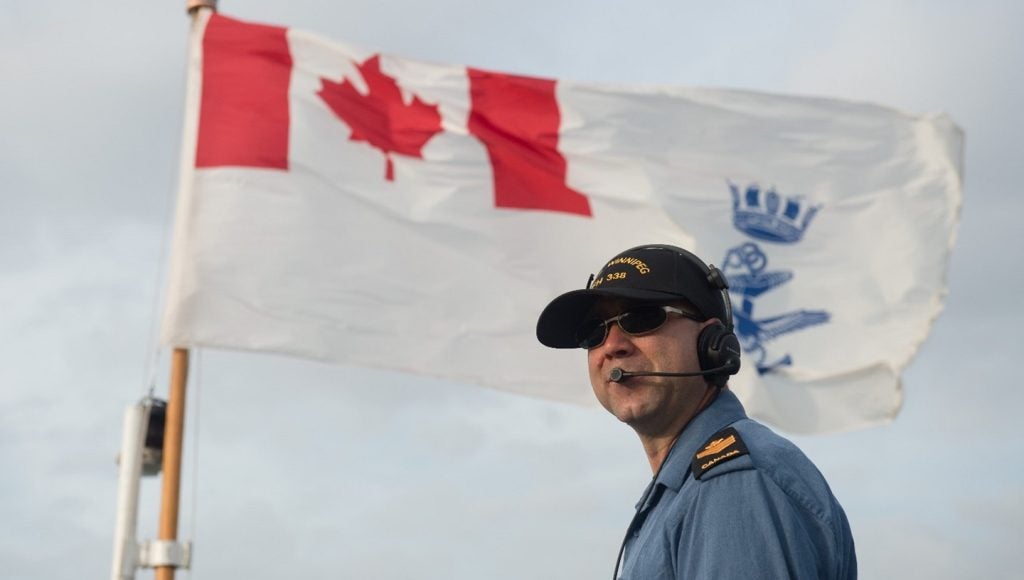
The UK and France have made further investment into the development of autonomous minehunting systems which could eventually replace the in-service Hunt and Sandown class minehunting ships.
The £184m investment in the Maritime Mine Counter Measure (MMCM) programme will see further funding go to Thales and L3 Harris work into the development of autonomous systems able to detect and neutralise sea mines.
The UK is looking to autonomous capabilities to replace its crewed Hunt and Sandown-class minehunting ships once they go out of service. The first of the three sets will be delivered in late 2022 where it will undergo operational evaluations before being transitioned into service.
The contract will cover the production of three sets of an autonomous vessel that can be controlled from a mothership, towed sonar to locate possible mines and a mine neutralisation system that is remotely operated and used to disable the mine once it has been located.
UK Defence Secretary Ben Wallace announced the investment at the Franco-British Council Defence Conference. Naval Technology reported earlier in November that the UK and France were gearing up to sign a contract for the MMCM programme this month.
How well do you really know your competitors?
Access the most comprehensive Company Profiles on the market, powered by GlobalData. Save hours of research. Gain competitive edge.

Thank you!
Your download email will arrive shortly
Not ready to buy yet? Download a free sample
We are confident about the unique quality of our Company Profiles. However, we want you to make the most beneficial decision for your business, so we offer a free sample that you can download by submitting the below form
By GlobalDataWallace said: “This £184 million contract offers a huge leap forward for the Royal Navy’s autonomous capabilities in the detection and defeat of sea mines. As the Armed Forces put modernisation at the heart of its future strategy, these systems will protect vital shipping lanes, commercial traffic and our brave personnel from these deadly devices.
“The programme also underpins a deep and ever-strengthening relationship with France and marks the tenth anniversary of the Lancaster House treaties between our two nations.”
MMCM is a ‘system of systems’ including uncrewed surface vessels (USVs), uncrewed underwater vessels (UUVs), sensors, command and control systems, and mine neutralisation systems.
This month, the UK and France marked the 10th anniversary of the signing of the Lancaster House Treaty designed to foster closer collaboration between the UK and French Armed Forces and lead to the creation of the Combined Joint Expeditionary Force (CJEF). The treaty also committed both parties to work together on new missile technologies.
 Image: DE&S
Image: DE&S
First Sea Lord Admiral Tony Radakin said: “I am enormously excited by the potential of the future minehunting capability.
“This will allow us to deliver minehunting more effectively, more efficiently and more safely, and to integrate even more closely with our French counterparts in this important area.”
The UK and France have been working together on the project to develop an autonomous minehunting capability. Recent trials off the coast of the UK and France proved the ability of the system to detect sea mines. In October, the MMCM programme completed its demonstration phase.
Thales UK CEO Alex Cresswell said: “Technologies such as autonomy and AI are transforming societies and warfare at an exponential rate.
“This contract represents the next generation for Anglo-French minehunting, delivering a world-leading capability that will keep our armed forces safe and create and secure vital jobs across the UK and our supply chain. We look forward to delivering the next stage in this exciting hi-tech programme.”
 MMCM concept Image: MOD/ Crown copyright.
MMCM concept Image: MOD/ Crown copyright.
Defence Equipment and Support (DE&S) negotiated the contract for the UK aspect of the MMCM programme. CEO Sir Simon Bollom said: “This ground-breaking technology brings with it a step-change in capability for the Royal Navy which is a bold step into the digital and autonomous world.
“I’m incredibly proud of DE&S and the Royal Navy team who have worked tirelessly with our French colleagues to deliver on this contract.”
The UK is also using the ongoing MMCM project to inform its Mine Counter Measures and Hydrographic Capability (MHC) programme, with the evaluation and trials of the former helping to inform future investment plans for the latter.








